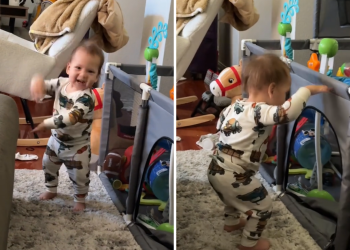The first Trump administration launched a sprawling campaign to ferret out leakers, which targeted reporters at CNN, the Washington Post, and the New York Times, plus members of Congress and their staff. But a watchdog report released to The Intercept shows that just days before the 2020 presidential election, senior Justice Department officials signed off on leaks to two favored newspapers with conservative reputations, both owned by the biggest name in right-wing media.
The report, which The Intercept obtained under the Freedom of Information Act, sketches the anatomy of a politically expedient leak authorized at high levels. Such leaks were frequent during Trump 1.0 — as in every other administration, in a tradition dating back to Benjamin Franklin’s days as colonial postmaster — and will certainly continue during Trump 2.0.
So will investigations of embarrassing leaks and prosecutions of disfavored leakers. Conservatives have urged Donald Trump, in the words of the Project 2025 manifesto, to “use all of the tools at [the Justice Department’s] disposal to investigate leaks.”
In late October 2020, three senior Justice Department officials leaked information and documents to the New York Post and the Wall Street Journal, both owned by conservative magnate Rupert Murdoch. The leaks concerned investigations into Covid deaths at nursing homes in New York and New Jersey. At the time, state officials alleged that the investigations and the strategic leaks were politically timed.
The inspector general found that the Department of Justice officials leaked “to select reporters, days before an election, non-public DOJ investigative information regarding ongoing DOJ investigative matters” per a high-level summary of the findings released in December.
On Tuesday, in response to FOIA requests from The Intercept and other outlets, the watchdog released its full investigative findings, including some evidence to support “partisan political motivation.”
The inspector general redacted the names of all three former officials from the report.
One of them is identifiable, however, from social media posts that the inspector general found also violated policy: Kerri Kupec Urbahn, the Justice Department’s former top spokesperson and former Attorney General Bill Barr’s “right hand,” who is now a legal editor at another Murdoch media property, Fox News. (Kupec did not respond to The Intercept’s requests for comment.)
The report describes and quotes from the officials’ discussions as they hashed out a press plan, which included leaking letters about the investigation before they were sent to state officials. The Justice Department officials settled on putting the letters together as a “package” and letting the New York Post “break it,” as one official, identified in the report as a senior official in the DOJ’s Office of Public Affairs, wrote in a text in mid-October 2020.
“Will be our last play on them before election but it’s a big one.”
“Will be our last play on them before election but it’s a big one,” the official wrote. A week later, the officials decided not to issue a press release about the letters, but instead to “give it to a reporter ahead of time” as part of maintaining “the upper hand.” Another official replied: “Agreed.”
The inspector general concluded that these and other communications “raise questions about whether the senior officials were motivated by partisan considerations to take and announce certain actions in proximity to the then upcoming 2020 election.” The watchdog referred its findings to the federal Office of Special Counsel to investigate whether any of the officials violated the Hatch Act, which prohibits using government positions for partisan purposes.
The evening of October 27, 2020, the New York Post broke the story as planned, reporting that Department of Justice was demanding more data from New York about Covid deaths in the state’s publicly run nursing homes and also opening an investigation into two of New Jersey’s state-run nursing homes. The story included links to both letters.
“This information was provided to the New York Post — and the New York Post published the piece online — before the Department had even provided the letters to New Jersey and New York officials,” the inspector general noted.
New York’s then-Gov. Andrew Cuomo, a prominent Trump critic, called foul on the strategic leak to a friendly outlet. “It should come to no one’s surprise that we learned of this letter from the New York Post,” a Cuomo spokesperson told Politico at the time. “They should have figured this out themselves, but there’s an election in a week and this federal government is clearly seeking to deceive and distract any way it can.”
The next day, the DOJ officials leaked the New Jersey letter and non-public details about the New Jersey investigation to the Wall Street Journal, the inspector general found.
Kupec, using her official DOJ account, posted links to both stories on Twitter that evening, which the inspector general deemed an “additional violation.”
All three senior officials either declined to be interviewed by the inspector general or didn’t answer its request, according to the report, as did former attorney general Barr. The inspector general has no authority to compel testimony from former DOJ employees, and referred the misconduct findings to other department components “for any action those offices deem appropriate.”
The orchestrated leaks played out parallel to the DOJ’s efforts, with Barr’s personal authorization, to investigate leakers and journalists. As detailed in another long-awaited inspector general report released last year, between May and November 2020 Barr signed off on seizing eight reporters’ email and phone records without notifying the outlets or providing an opportunity to challenge the dragnet.
One DOJ official told the inspector general that Barr had “made it very clear leak investigations were a priority of the Department.” But as the latest report shows, the Justice Department’s concern about leaks was selective.




















